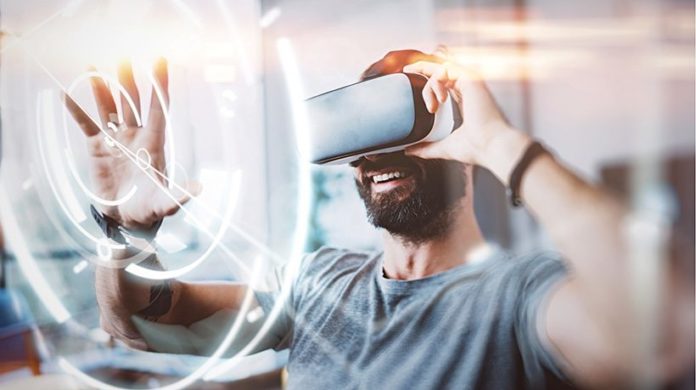The metaverse could prove to be the breakthrough that changes our lives more than just about any other technological innovation in history. However, while it is becoming a much-used phrase, not everyone is yet clear on what exactly it means and how it could affect them.
What Is the Metaverse?
This word dates back to 1993, when it was used in the sci-fi novel Snow Crash, by Neal Stephenson. At that time, it was something incredibly far-fetched given that 1990s technology was nowhere near ready to deal with. More recent developments suggest that we could be close to seeing a fully-fledged metaverse introduced soon, though.
Facebook CEO Mark Zuckerberg has pledged to “help bring the metaverse to life”. So what would this really mean for us? The metaverse is perhaps best described as a fully-immersive and interactive virtual reality (VR) world where we could play games, but could also go shopping, meet people, and do just about everything that we currently carry out in the physical world.
This would be a huge leap forward from the VR technology on offer just now. The new best headsets such as the Oculus Quest 2 and the Sony PlayStation VR give us a glimpse of the potential of this technology. Yet, they are still rather distant from the idea of a huge type of virtual world in cyberspace where we are all linked and where VR meets the real world. We could think of it as being inside the internet rather than outside looking in.
Perhaps a better example of how this could work comes from open-world games like those on the Roblox platform. With over 200 million users estimated to have used Roblox in April 2021 and developer earnings of more than US$250 million in 2050, the incredible success of this platform has shown that the desire is there for a virtual world we can explore freely with no limits.
How New Tech Has Seen Everyday Things Go Online
The idea of being inside the internet can be seen in movies like 2018’s Ralph Breaks the Internet by Walt Disney Studios. It might seem impossible to imagine technology advancing so far from where it is currently, but to imagine the metaverse coming to life we just need to look at how far the internet has come in the last decade or two.
Among the everyday tasks that would have once been impossible to imagine doing online is banking. Now, more than 75% of Canadians use mobile banking to carry out most of their daily transactions. We can even download mobile banking apps that use artificial intelligence to track our spending habits and advise us how to save more money each month. The metaverse would be the next step, allowing customers to bank in a VR setting rather than relying on speaking to AI bots in contact centers or visiting their local branch.
Shopping is another area that has changed greatly through the use of technology. Ecommerce now makes up over 14% of all global retail sales and that number is expected to reach 95% by 2040. The online shopping experience has changed dramatically since the early days, with mobile apps from companies like Ikea and Amazon now using augmented reality to let us see products exactly where we plan to use them. It is easy to imagine how the introduction of the metaverse could make shopping even easier.
The casino industry shows quickly new technology can become established. The Betway Casino site now has a range of live-streamed table games like roulette and blackjack that give an experience that is very close to being in a land casino. These games feature a human dealer who is live-streamed using high-quality broadcasting equipment onto the player’s screen as they spin the wheel or deal the cards. With a mobile option available on an app, these live-streamed games give us a glimpse of what the metaverse could eventually provide.
How Could This Change Happen?
By combining both of the main elements – VR and open-world games – we can see start to get a better feel for what the metaverse could be like. An idea suggested by Zuckerberg is to get a big share of the market and sell cheap VR headsets to greatly increase the number of people who could enter the metaverse. This, he explained, would help to create a vibrate digital economy inside it. Imagine a world where we all do things like go shopping and buy our new houses in a VR environment.
Some of the latest VR figures suggest that the market should grow to over US$209 billion by 2020, with more than 171 million people now using VR around the planet. Facebook is leading the way by introducing a VR workspace for its teams while working on wearables such as wristbands and goggles. The Facebook Horizon site lets users play, create, and work in a highly innovative setting.
Microsoft has also been investing heavily in this area, with the artificial intelligence and mixed reality possibilities in the Microsoft Cloud helping to “bring this entire stack together”, according to their site. Epic Games and Apple are other tech companies that are often touted as being possible leaders in introducing this technology to the market. Ideas like studying online in virtual classes would become a lot easier thanks to the metaverse, showing how it could genuinely transform our lives.
The concept of the metaverse may still sound like sci-fi to a lot of people, but it seems increasingly certain that this technology will soon become a big part of our lives.










